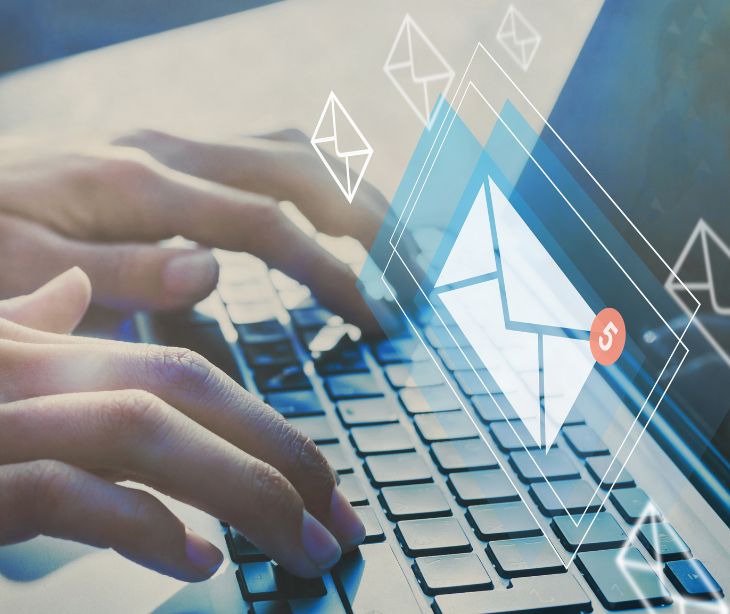
Email auditing upholds HIPAA compliance by systematically reviewing electronic communications, identifying compliance gaps, and preventing unauthorized access or transmission of protected health information (PHI).
The purpose of email audits in upholding HIPAA compliance
- Identifying potential compliance gaps: These audits uncover unprotected PHI transmission, policy non-adherence, and unauthorized access. An audit might reveal employees inadvertently sharing patient information outside secure networks, requiring immediate rectification.
- Assessing risk: Beyond identification, audits provide insights into overall email security, helping prioritize security efforts. You can identify vulnerable areas by analyzing the frequency of encrypted email usage or evaluating access controls.
- Verifying policy effectiveness: Audits assess the effectiveness of existing HIPAA-related policies. Organizations can refine and strengthen protocols by analyzing policy adherence trends to ensure compliance.
- Demonstrating accountability: Healthcare organizations can promote a culture of responsibility among staff by maintaining a consistent auditing schedule and taking corrective actions as necessary.
The scope of email audits
- Sender and recipient: Review emails from all staff, contractors, and associates with PHI access to ensure a comprehensive evaluation of potential vulnerabilities across the network.
- Email content and attachments: Scrutinize email content and attachments for PHI. Employ automated tools capable of scanning text within attachments to ensure thorough compliance checks.
- Third-party services: Assess emails involving third-party services used for healthcare purposes. Evaluate the security measures adopted by these services to ensure PHI protection.
How to conduct effective audits
- Defining the audit scope: A clear outline of audit parameters, including timeframes and departments involved, ensures a focused evaluation.
- Establishing audit criteria: Develop clear criteria for identifying PHI and noncompliant practices. Parameters might include specific keywords, attachment types, or designated sender domains.
- Using audit tools: Use specialized tools for automated analysis to streamline the auditing process. These tools identify potential breaches and aid in trend analysis for proactive measures.
- Ensuring data privacy: Healthcare organizations must protect individuals' privacy while conducting audits. Anonymizing data during the auditing process safeguards sensitive information.
Promoting a culture of accountability
- Provide education and training: Conduct mock audit scenarios during training to effectively reinforce compliance protocols.
- Address findings promptly: Timely responses to potential breaches or noncompliant practices show a proactive commitment to compliance.
- Involve employees: Request feedback and suggestions for improvement to encourage a collaborative approach to compliance.
- Recognize compliance efforts: Acknowledge and reward adherence to HIPAA compliant practices to boost morale and reinforce desired behaviors.
The role of email auditing in preventing breaches
- Early detection of breaches: Identifying potential breaches enables timely intervention. For instance, an audit might reveal a pattern of unauthorized access attempts.
- Reducing the risk of penalties: Documenting due diligence lowers the likelihood of regulatory penalties. Consistent and thorough audits showcase an organization's commitment to compliance.
- Protection of patient trust: Safeguarding PHI maintains patient trust and organizational reputation. Proactive measures through audits uphold confidentiality, ensuring patient information remains secure.
Related: The role of audit trails for HIPAA compliance
FAQs
How can smaller healthcare practices manage email audits effectively?
Smaller practices can utilize third-party audit services or automated tools designed for small-scale operations to maintain compliance without overburdening staff.
What is the role of business associate agreements (BAAs) in email auditing?
BAAs ensure that third-party vendors involved in email communication are also accountable for maintaining HIPAA compliance, making it crucial to include them in email audits.
Can email auditing help in training staff on HIPAA compliance?
Audit findings can highlight specific areas where staff may need additional training, making audits a valuable tool for targeted HIPAA education.
Subscribe to Paubox Weekly
Every Friday we'll bring you the most important news from Paubox. Our aim is to make you smarter, faster.




